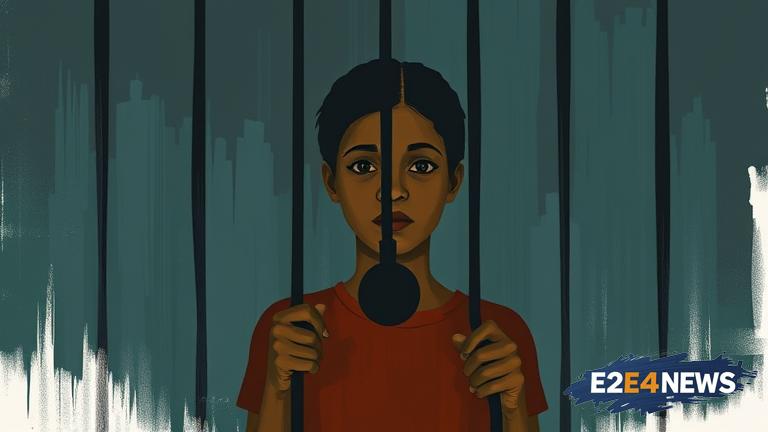The story of a woman whose loved one is incarcerated has shed light on the profound impact that imprisonment can have on families and communities. The woman, who wishes to remain anonymous, has spoken out about the emotional turmoil she has endured since her loved one was jailed. She describes the feelings of isolation, anxiety, and depression that have become a constant presence in her life. The woman’s loved one was sentenced to several years in prison, leaving her to navigate the complexities of the criminal justice system alone. She has had to deal with the financial burden of supporting her loved one while they are incarcerated, including paying for phone calls, visits, and commissary expenses. The woman has also had to cope with the emotional strain of being separated from her loved one, including the pain of missing important milestones and special occasions. Despite the challenges she faces, the woman remains committed to supporting her loved one and advocating for their rights. She believes that the current prison system is in need of reform, citing the lack of resources and support available to families of incarcerated individuals. The woman’s story is not unique, as millions of people in the United States have a loved one in prison. According to recent statistics, over 2.3 million people are currently incarcerated in the US, with many more family members and loved ones affected by their imprisonment. The impact of incarceration on families can be devastating, leading to increased rates of poverty, homelessness, and mental health problems. Children of incarcerated parents are also more likely to experience behavioral problems, poor academic performance, and increased risk of incarceration themselves. The woman’s story highlights the need for greater support and resources for families of incarcerated individuals, including counseling, financial assistance, and advocacy services. It also underscores the importance of prison reform, including efforts to reduce recidivism rates, improve prison conditions, and increase access to education and job training programs. Furthermore, the woman’s experience demonstrates the importance of addressing the root causes of crime, such as poverty, lack of education, and mental health issues. By providing more support and resources to families and communities, we can work towards reducing the number of people incarcerated and creating safer, more just communities for all. The woman’s story serves as a reminder that the effects of incarceration extend far beyond the prison walls, affecting not only the individual but also their loved ones and the broader community. As we move forward, it is essential that we prioritize the needs of families and communities, working towards a more compassionate and equitable justice system. This includes increasing funding for programs that support families of incarcerated individuals, such as counseling services, job training programs, and education initiatives. Additionally, we must work to address the systemic issues that contribute to mass incarceration, including racial disparities, poverty, and lack of access to education and job opportunities. By taking a comprehensive approach to addressing the needs of families and communities, we can create a more just and equitable society for all. The woman’s story is a powerful reminder of the human impact of incarceration and the need for reform. It highlights the importance of prioritizing the needs of families and communities, and working towards a more compassionate and equitable justice system. As we continue to navigate the complexities of the criminal justice system, it is essential that we remember the human faces behind the statistics, and work towards creating a more just and equitable society for all. The woman’s experience serves as a call to action, urging us to prioritize the needs of families and communities, and to work towards a more compassionate and equitable justice system. By sharing her story, the woman hopes to raise awareness about the impact of incarceration on families and communities, and to inspire others to take action. Her story is a testament to the resilience and strength of families and communities, and a reminder that we all have a role to play in creating a more just and equitable society.
